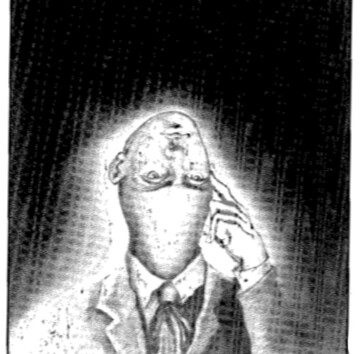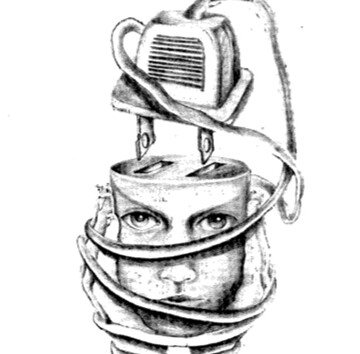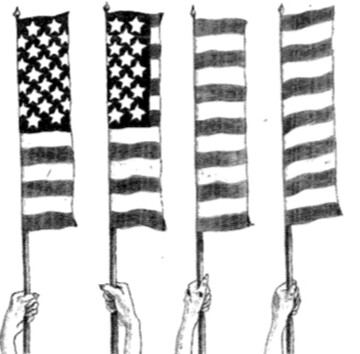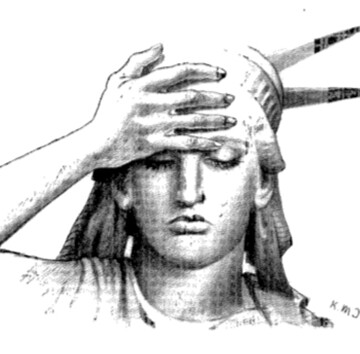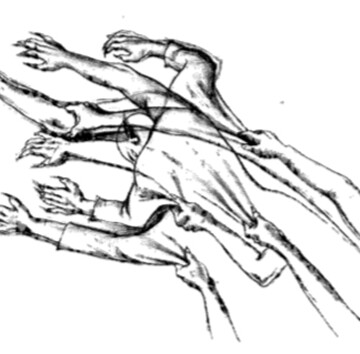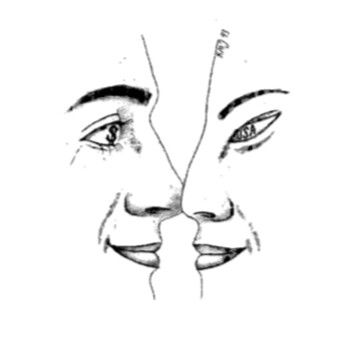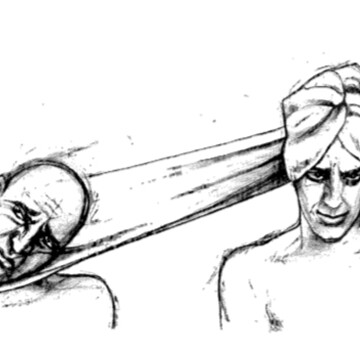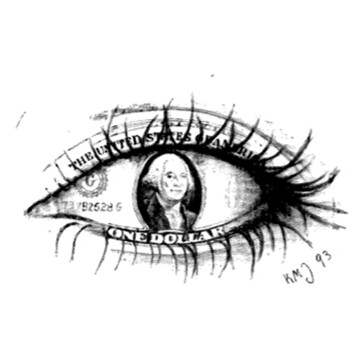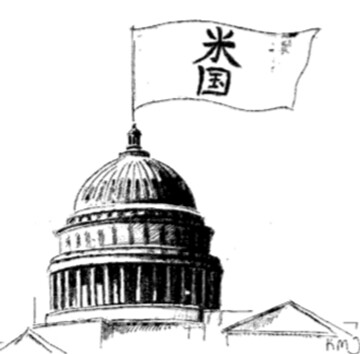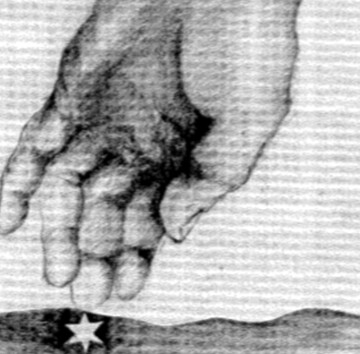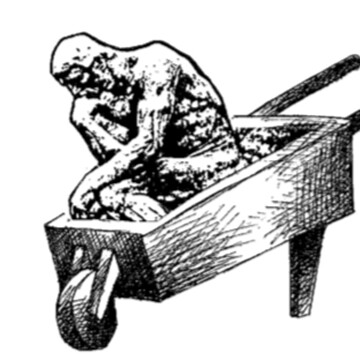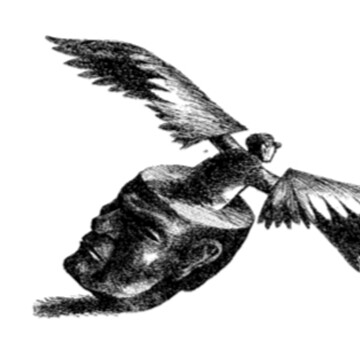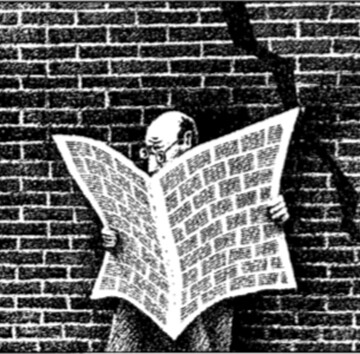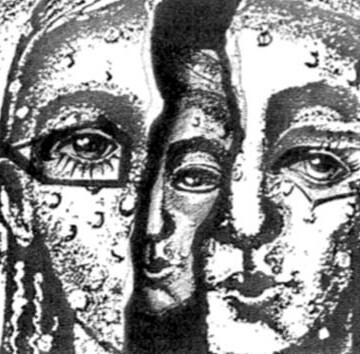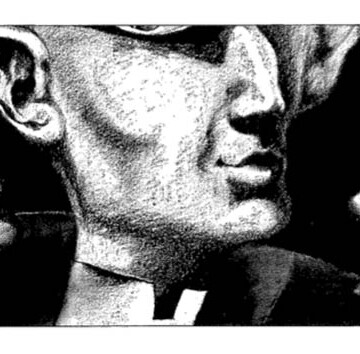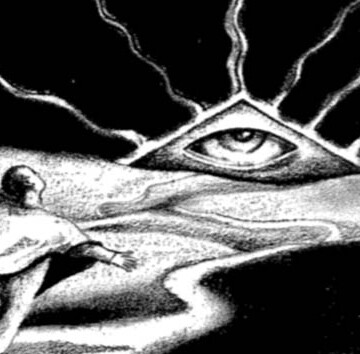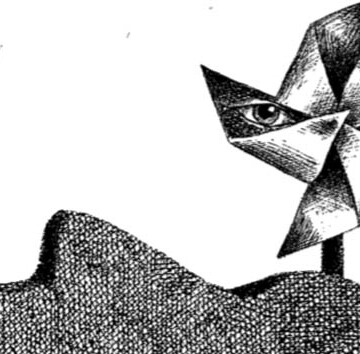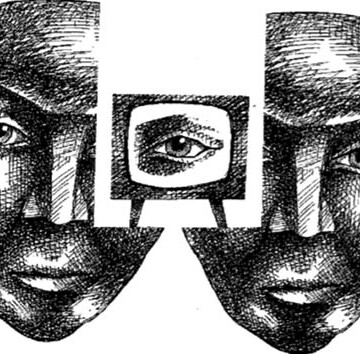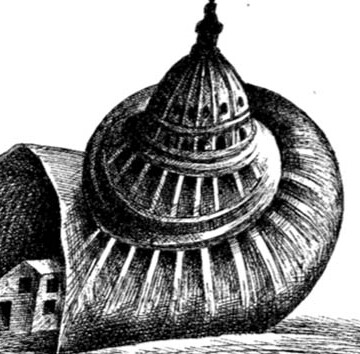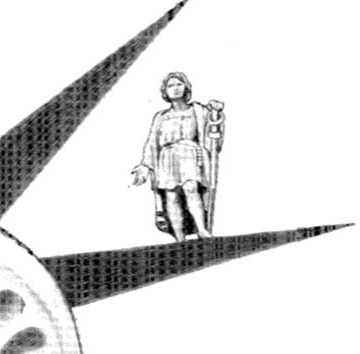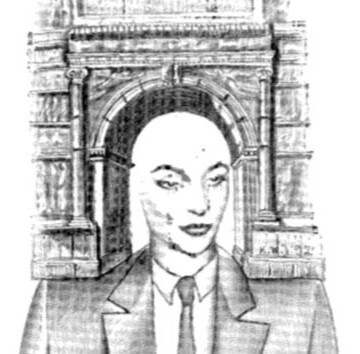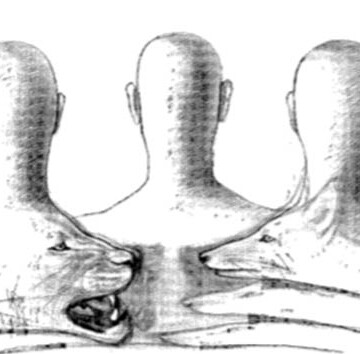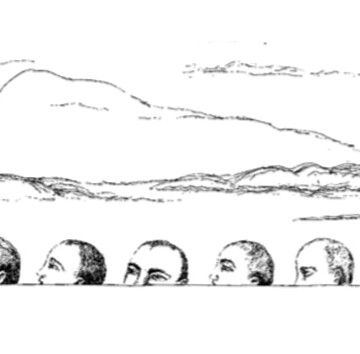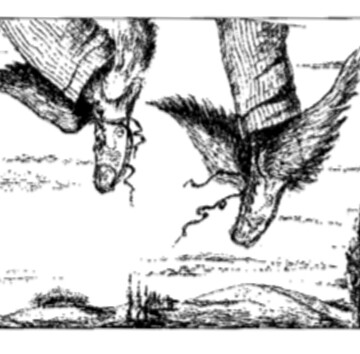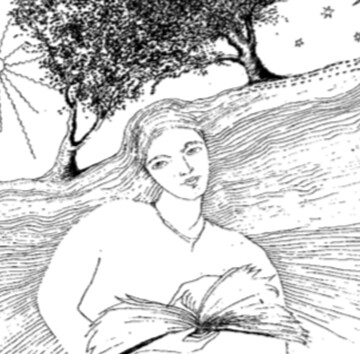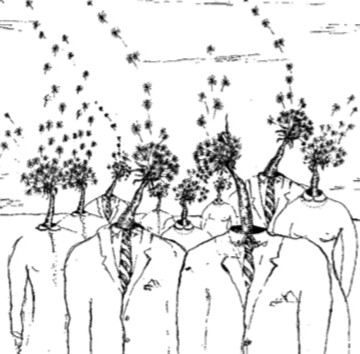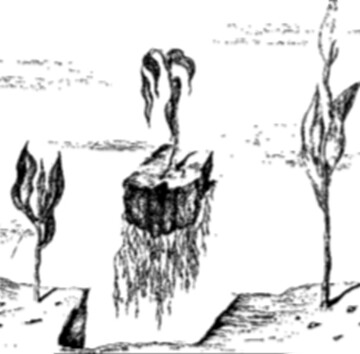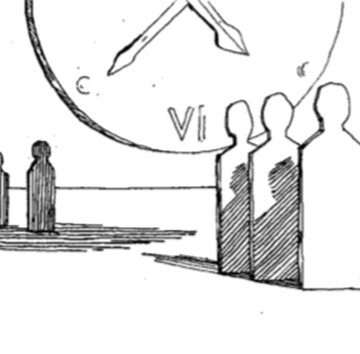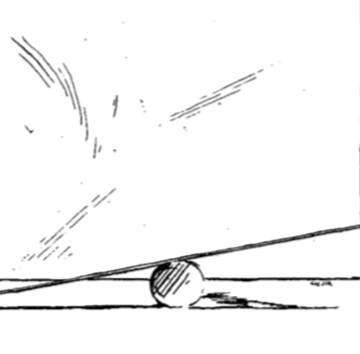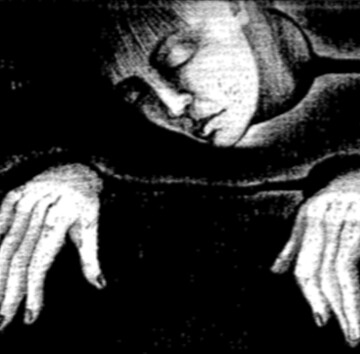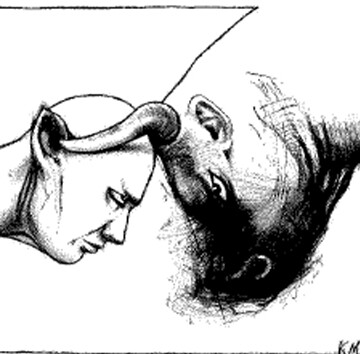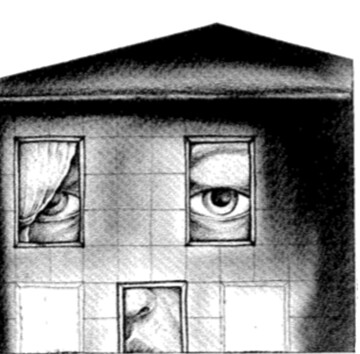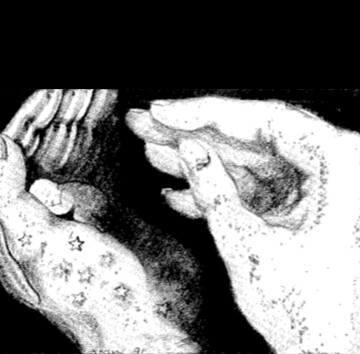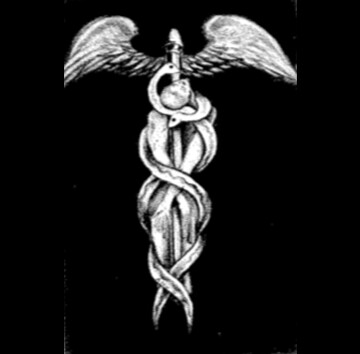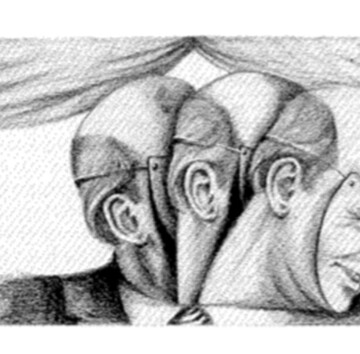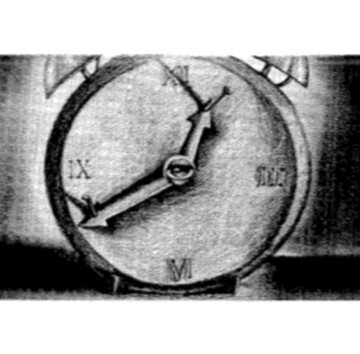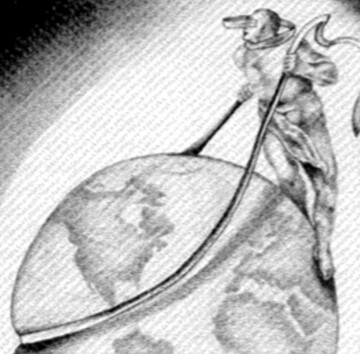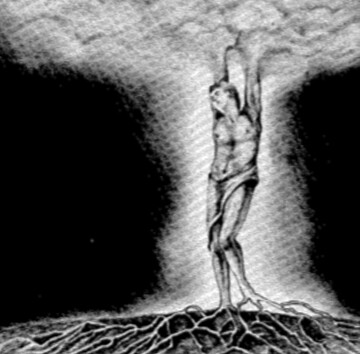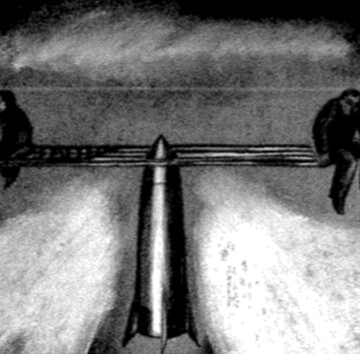How much is actually known and not just supposed or imagined? A lot more, surely, than it is fashionable to think, at least in the world that moral and literary theorists seem to inhabit. So much more, that it is easy to forget how much by which we interpret the world and its texts is...
Pain Without Purpose
“We must remain absolutely silent on what we cannot talk about.” Wittgenstein’s interdict would surely apply to the mystery of human suffering; at certain intensities, pain becomes literally as well as idiomatically unspeakable. Even to allude to the educative value of pain is to risk an inhuman glibness, a cold-blooded reduction of the specificity of...
The Ideology of Technology
The technological age has been in gestation since the late Middle Ages, when the Sorbonne professors (Oresme, Buridan), the Catalan Ramón Lull, and the German Nicholas of Cusa directed their quest away from the Scholastic philosophy of essences toward a method that explores relationships. This quest was at the heart of modernity, and for centuries...
Cultural Diversity and Unity
There is plentiful historical evidence that cultural diversity and immigration need not undermine a society’s cohesion. They can be sources of enrichment and renewal. Especially in a vital civilization, groups of different religious, ethnic, and national origin may be pulled, however reluctantly in particular cases, into a dynamic arid fertile consensus. One problem with immigration...
The P’s and Q’s of Immigration
Dear Dinah: Sounds like your solo in the Boston church was a triumph. Your grandma and I wish we could have been there to hear it. We’ll make it some time. Now to defend myself against your charge that I’m just an old Scrooge when it comes to immigration. To Cain’s question “Am I my...
Therapeutic Democracy
It is impossible to judge what is wrong with democracy unless we first understand its changing and constant features. The democratic principle as we now encounter it is both ancient and rudely contemporary. Among the ancient aspects of our contemporary democracy are the spirit of equality and the dangers that result therefrom. Aristotle properly perceived...
The National Question
Peter Brimelow was supposed to deliver the keynote address at the John Randolph Club conference in Chicago last December, but he was marooned in New York by weather conditions. What follows is an extract from his prepared remarks. I believe the central issue in American politics at the end of the century is what might...
Selling Out—Past and Present
Many who leave Main Street, U.S.A., to do good in Washington, D.C., remain on to do well for themselves. Since the beginnings of the American Republic, thousands of former congressmen, staff assistants, and senior officials in the executive branch have trod that familiar career path. The bright and ambitious, as well as the foolish and...
The Middle East Connection
Pat Buchanan set off political sparks during the 1992 primaries with his charge that President Bush was allowing foreign agents to run his reelection campaign. Ross Perot later fanned the sparks into a prairie fire with accusations that former government officials earn $25,000 and $30,000 a month representing foreign interests. Bill Clinton joined in with...
Fixers for a Fee
For nearly a decade now, Washington has been mired in scandals involving senior American officials who have hired themselves out to various foreign governments and companies. What is new today about this disturbing phenomenon? Because of several recent, investigative studies, we know much more about who is working for overseas interests than in the past;...
Puppets for Nippon
The Japan Economic Journal reported in 1980 that “influence in Washington is just like in Indonesia. It’s for sale.” It still is. Today, more than 100 foreign governments and hundreds of foreign corporations are running on-going political campaigns in the United States, as though they were a third major political party. Mexico, for instance, is...
Work of Human Hands
The priest had just closed the volume by Thomas à Kempis on the bookmark and put away what was left of the bottle of wine when the telephone rang. He answered it reluctantly and recognized Mrs. Corelli’s voice on the line, begging him to hurry and saying that the doctor was already on his way....
Thoughts of Empire
When Mikhail Gorbachev declared that he was going to withdraw Russian troops from Afghanistan, people were so entranced by his supposed sincerity that they neglected more interesting aspects of the announcement. If it was genuine—and there was no convincing argument for thinking it was not—then it was the first sign, as those familiar with the...
The Politics of Employment
“Jobs Issue Dominates Defense Cuts Debates,” the Los Angeles Times proclaimed in a recent article. The story informed us that the end of the Cold War has brought about layoffs for many workers in the defense industry. This, in turn, has led members of Congress to wonder if the reductions in military spending associated with...
The Consequence of Ideas
Unusual news is arriving from the former Soviet Union: leading democrats such as Yuri Afanasyev, Yelena Bonner, and many others are publicly protesting against the management of Radio Liberty. The immediate cause of their protest is Radio Liberty’s decision to drop one of its most popular programs, “In the Country and in the World,” whose...
The New Right of the Old World
Intellectual conservatism in Europe began its odyssey with Donoso Cortes in the 19th century, only to end its shipwrecked voyage a century later with Oswald Spengler. European conservatism has always been a panic-stricken response to the egalitarian torrents that have been sweeping over Europe since the American and French Revolutions. After 1945, the anus mundi...
Believe the Children?
We may begin with a nightmare. Imagine that you are the parent of a preschool child and that one day police and child-protection officials appear at your door. They inform you that a teacher or daycare worker suspects that your child has been abused and that subsequent interviews with therapists have proven this fact to...
Uncommon Properties
Pick up any newspaper at random, and you will come upon story after story of children being murdered, beaten, and molested. I begin this chapter on Monday, October 19, 1992, and looking over the Chicago Tribune I discover: a frontpage story on Chicago schoolchildren venting their grief over the murder of their friends, a headline...
Priests and Pedophiles
“Catholic priests claim to be celibate, but we know what they’re really up to. Most of them seduce women, the rest like little boys. Priests trap them in the confessional, and when the priests are found out, the bishops let them off with a slap on the wrist. Celibacy, hierarchy, secrecy, the confessional—those are the...
The Pilgrimage of Malcolm Muggeridge
In the second segment of the several-part BBC documentary on his life, Malcolm Muggeridge smoothed his white feathery hair away from his cherubic face, smiled cryptically, and said in his deep, rolling, gentle English voice, “There’s nothing in this world more instinctively abhorrent to me than finding myself in agreement with my fellow humans.” And...
The Revolt of the Nonvoter
On November 3, 1992, the most surprising news will not be who has won the presidential election, but whether a majority of the 186 million Americans eligible to do so will have voted. The salient question today is whether a moiety promises to become a majority. Four years ago they barely missed the honor: 49.84...
Reforming the Invisible Primary
We have just completed another round in a continuing national experiment in political theory—the primary selection process as it has been revised in several waves of democratic reform. I believe this experiment, filled with noble intentions, has largely been a failure. From the standpoint of democratic theory, the presidential selection process should be both representative...
The Homeless Majority
The middle-class revolt of 1992 is an angry rebellion against America’s 25-year experiment with nondemocratic government. Around the mid-1960’s, both political parties abandoned the average American, but for different reasons. The Democrats, taken with the high morality of the counterculture, deserted him because their hearts turned against him; they decided he was selfish and racist....
Blaming Columbus
The news that politically correct groups in the United States are greeting the 500th anniversary of Columbus’ discovery of America by denouncing the great explorer as an imperialist exploiter has been greeted with incredulity and derision in Europe. After all, had he not discovered America, there would be no tax-fed intelligentsia of progressive Americans to...
Gift: The Life of Lorenzo Da Ponte
Not merely a strange place, but the home of strangeness, the land stretching away west to vertiginous spaces beyond the imagination. Philadelphia first, then New York, where Nancy is living. The Grahls have done well, chemists, merchants, physicians. Lorenzo and Nancy cross the river, settle in Jersey, open a grocery store in Elizabeth. He writes...
Margaret Fuller in Rome
“Oh Rome! my country! city of the soul! The orphans of the heart must turn to thee!” —Lord Byron, Child Harold’s Pilgrimage What is the greatest lost work of ancient literature? Was it Arctinus’ epic Aethiopis, which told of the battles of Achilles against Penthesilea, the Amazon Queen, and Memnon, black King of the Ethiopians?...
Crime Story
Probably not since Margaret Mitchell’s Gone With the Wind has a popular novel influenced Americans as deeply as Mario Puzo’s The Godfather. Appearing in 1969, the book remains, according to the inflated come-on of its publisher’s blurb, “the all-time best-selling novel in publishing history.” If true, that claim in itself is no mean accomplishment, considering...
Wyndham Lewis and the Moronic Inferno
Looking back today at the achievements of the heroic modernists, we must do so with at least some degree of ambivalence. The presence of those colossi has receded with the passing of the years; and we no longer regard them as they themselves taught us to do. Yet they still loom on the mental horizon,...
Céline and French Reactionary Modernism
Reactionary literature in France today—as opposed to earlier varieties, for example the romantic, two centuries ago—is distinguished by its despair, its radical style, its exploration of new worlds, its almost science-fiction approach to life and letters. Its most powerful motive is unquestionably despair: of democratic vulgarity, the machine civilization, the social monotony that spreads over...
The Patriotic Impulse
I must now, in public, repeat what I privately expressed to the directors of the Ingersoll Foundation: my gratitude for their having chosen me as the present recipient of this honorific award. And I must add another source of my gratification, which is the very phrasing of it: the Richard M. Weaver Award for Scholarly...
Consensual Citizenship
The customary division of national laws of citizenship into the “principles” of jus soli (place of birth) or jus sanguinis (line of descent) denotes the objective criteria most often used to determine one’s citizenship. But the conceptions of political membership that have vied for supremacy in Anglo- American law implicate a different, more fundamental dichotomy—one...
Great Nations Need Great Citizens
A nation’s wealth and status is like starlight—what you see is not what is, but what was. Just as the light we see from a distant star started its journey thousands of years ago, so is the nation’s current success due principally to past actions. Great nations have great momentum; past investments in education and...
Three Bads and an Excellent
Let’s say that you have an enthusiasm for golf, tennis, or dining out but live in an area in which the necessary facilities are available exclusively on a membership basis in private clubs. Assume also that any very extended exclusion from these activities leaves you bored, dejected, morose. In these circumstances, and on the added...
Restoring the Republic
A history textbook used by thousands of college freshmen for the last twenty years tells fledgling citizens that democracy is the system of government which “trusts the average man to free himself from tradition, prejudice, habit, and by free discussion come to a rational conclusion.” This tissue of sophistry encapsulates the derailment of republican self-government...
The American Crisis Without Alternative
The most important event of the waning years of the 20th century is the collapse of the last of the great national socialist powers whose rise and fall dominated the generations after World War I. The Axis easily defeated their liberal and imperial opponents, but were crushed by the national socialist regimes of the Soviet...
Nationalism, Old and New
In the course of American history, nationalism and republicanism have usually been enemies, not allies. From the days of Alexander Hamilton, nationalism has meant unification of the country under a centralized government, the supremacy of the executive over the legislative branch, the reduction of states’ rights and local and sectional parochialism, governmental regulation of the...
Turning Bad Into Good
In 1983 I noted in Just and Painful: A Case for the Corporal Punishment of Criminals that there were approximately 315,000 individuals incarcerated in federal and state prisons, plus some 158,000 persons in jails of various kinds. The annual cost of this incarceration was estimated then to be $20,000 per inmate, amounting to an annual...
Fighting Drugs, Taking Liberties
In the early 1980’s, the Reagan Justice Department announced a far-reaching “war” to free the United States from illicit drug use. There was skepticism at the time that government actions could cause such a fundamental change in entrenched public attitudes and behaviors, and there were different views about the means by which such a war...
Blood at Eastertide
Europeans from Cortes to Graham Greene, and Americans from Ambrose Bierce to the contemporary tourist who is offered sugar-candy skulls to buy on the Day of the Dead and has his car stopped by men in anonymous uniforms toting guns, have discovered Mexico to be a country characterized by a ferocious reality that very often...
From El Paso to Plymouth
Last November, a delegation of citizens from the far West Texas border city of El Paso made the long journey to Plymouth, Massachusetts. The purpose of the El Pasoans’ visit was to challenge Plymouth’s long-held—and nearly universally accepted—claim that it was the site of the first Thanksgiving to be held on what is now United...
The Incredible Shrinking Woman
Movies, according to conventional wisdom, reflect society. And so they do. Politically, movies often reflect the perspective of Hollywood artistes who think they possess a gift for reflecting society. Commercially, movies reflect not only audience taste but what some director or studio executive assumes is audience taste; they reflect not only what we’re willing to...
Who Is Sylvia? What Is She?
Unlike the situation of only a few decades ago, the position occupied today by women poets in American literary culture is so prominent, the range of their subjects and styles so wide, that it has become virtually impossible to make any generalizations about them or their work except to note that in diversity must lie...
Confessions of a Housing Policy Junkie
I spent the 1970’s looking for a social policy agenda I could love. I thought I had found one in federal housing subsidies. The image of the free family on its homestead powerfully appealed to my imagination. I saw the suburban home as heir to the Jeffersonian agrarian spirit, its bond to property stimulating the...
Social Security as Family Policy
Almost two years ago, Daniel Patrick Moynihan did the nation a great service by making Social Security safely controversial. Acknowledging the approaching problem of the huge baby boom retirement that will have to be supported by the smaller baby bust generation, Moynihan’s plan would have eliminated the trust fund created by the 1983 Social Security...
The Doctor and the State
While cooling my preadolescent heels in the family doctor’s office forty-odd years ago, I was given to studying a Victorian Era print that hung on the waiting room wall. The Doctor was its title. A young woman, bare arm flung helplessly toward the viewer, lay stretched on chairs in, apparently, the family parlor. The tailcoated...
Totalitarianism With a Capitalist Face
In an essay dated January 1, 1991, and published last July, on the day Mikhail Gorbachev met John Major in London, I forecast the former’s demise. “Sadly for his Western admirers,” I wrote, “even unprecedented dictatorial powers cannot guarantee political longevity in Gorbachev’s case. He is a dictator by the grace of the secret-police apparatus:...
Regression and Renewal
In February 1941, the world was at war. Nazism and fascism ruled virtually all of Europe and parts of Africa. Imperial Japan was poised to conquer much of East Asia. Joseph Stalin still controlled the world’s largest land mass, although Hitler was soon to shake Stalin’s throne. That year, Pitirim A. Sorokin, born in 1889,...
Prophet Sustained
When National Review published a special obituary issue on James Burnham soon after his death in 1987, perhaps the most remarkable contribution came from the pen of John Kenneth Galbraith. The Harvard economist reminisced about the eager welcome with which he and fellow New Dealers in the Roosevelt administration had received Burnham’s The Managerial Revolution:...
The Decline and Splendor of Nationalism
No political phenomenon can be so creative and so destructive as nationalism. Nationalism can be a metaphor for the supreme truth but also an allegory for the nostalgia of death. No exotic country, no gold, no woman can trigger such an outpouring of passion as the sacred homeland, and contrary to all Freudians more people...
Origins and Outcome
To the degree that it is remembered at all, the America First Committee (AFC) has gone down in history as an organization most suspect, at best composed of good people serving a bad cause, at worst riddled with conscious agents of a Nazi transmission belt. During its heyday in the years 1940-1941, some of the...
